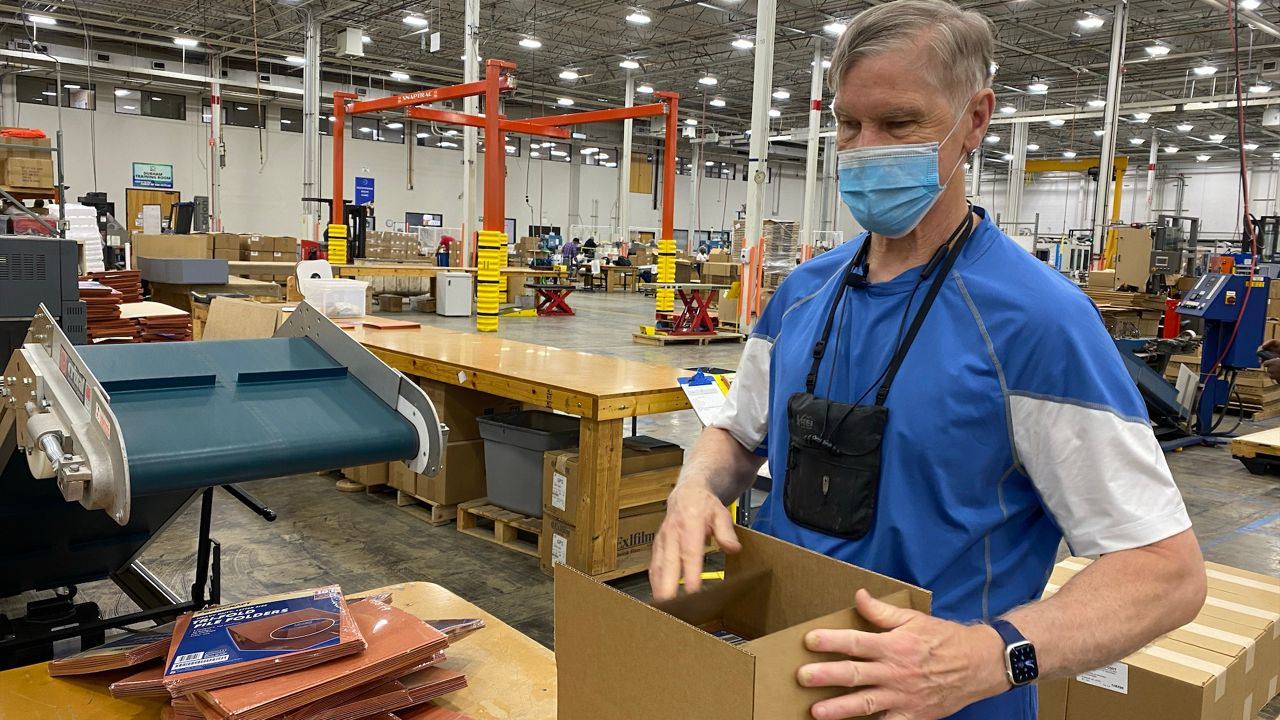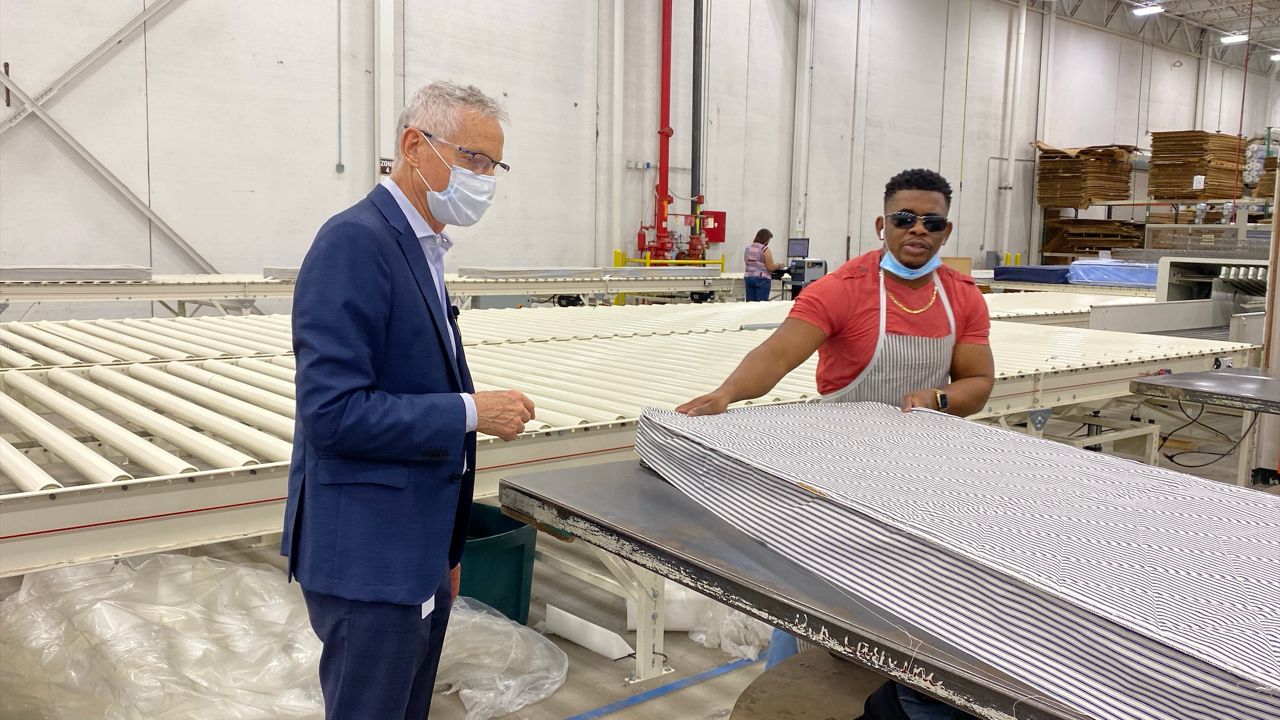DURHAM, N.C. — A worker who lost his sight decades ago said people like him can perform numerous jobs if given the chance.
Glenn Permar has worked for LCI Industries at its factories in Greensboro and Durham for nearly 30 years. On any given day, he might find himself making file folders, shredders, computer keyboards or the mattresses used on Navy ships.
“I probably liked that job [mattresses] the best of any because it was the most challenging job,” he said. “If I'm steadily busy, the day goes by good.”

Permar, now 68, gradually lost his sight when he was younger, going completely blind by the time he was 30. Every morning during the workweek, he takes a bus to LCI Industries' Durham plant. Once there, he and his fellow employees receive their assignments and set to work on a standard 8-hour shift.
LCI Industries is one of five nonprofits in North Carolina that specifically employs workers who have visual impairments or severe disabilities. The company makes a wide range of products, most of which it sells to the federal government, including the U.S. military.
It also offers services such as call center personnel. Company President Jeffrey Hawting said the company pays its employees above minimum wage and competes at market price.
LCI currently has limited private market presence and few non-federal contracts. That could change under legislation now in the N.C. General Assembly that would require the state to purchase goods and services from nonprofit work centers for the blind and severely disabled whenever possible.
Bill sponsor Rep. Jon Hardister, R-Guilford County, said the state would still be required to pay similar prices to what it pays for such products now. He said the main goal of the bill is to create more jobs for North Carolinians who are blind without spending more money to do it.
According to the Bureau of Labor Statistics, 12.6% of people with disabilities were unemployed last year, compared to 7.9% for those without a disability. These figures incorporate the impact of the COVID-19 pandemic.
Moreover, about eight in 10 people with disabilities were not in the labor force in 2020, compared to three in 10 for those without disabilities. Hawting said most employers don't want to take a chance on applicants who have a disability, so few opportunities exist outside of organizations like his, who specifically hire workers with disabilities.

Hawting said his company alone already employs about 340 people, roughly 150 of whom live with visual impairments. He said he could add at least another 20 or 30 workers who are blind if the bill passes.
“Unless you have business, you can't employ more people who are blind,” he said. “It's no additional expense to the state, it's just giving people who are blind or have other disabilities the opportunity to be part of that workforce.”
Permar said he's glad places like LCI are willing to hire people with disabilities. He said it's disappointing to see most employers turn away otherwise-qualified people.
“People that come into LCI are really shocked to see some of the things we do,” he said. “It would really be good if other employers would realize that we can work with the rest of the community, but most of them won't give us that chance.”
The bill passed the N.C. House at the start of this month on a near-unanimous vote. It is now awaiting action by a Senate committee.
